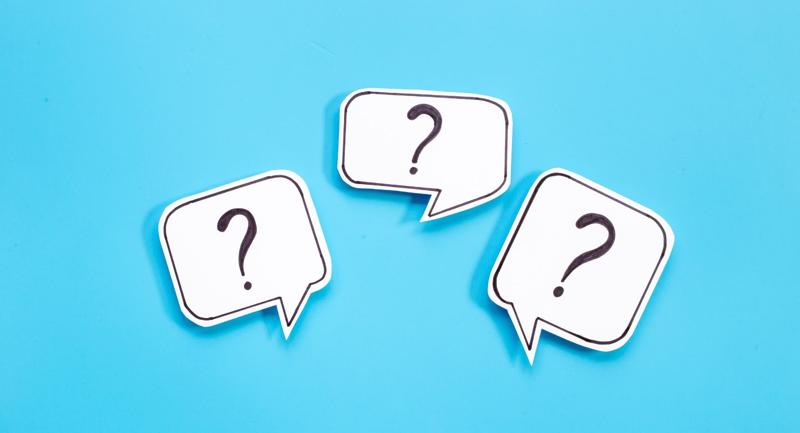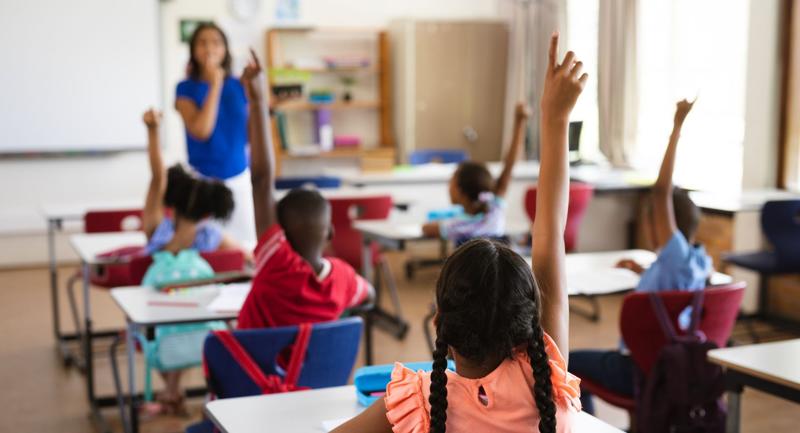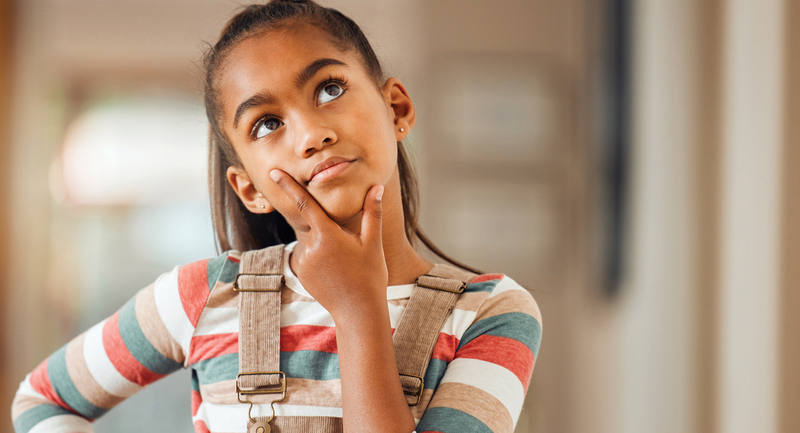With schools reopening across the country, some students are refusing to return to a time when their voices weren't incorporated into decision making. Over the past year, students have sat through endless Zoom classes and watched life as they knew it upended by the COVID-19 pandemic and civil unrest in America. Their well-being has been significantly impacted. At the same time, they want to meaningfully engage with adults to fix the problems that society has laid at our feet. They are advocating for increased student input into decisions that directly impact their education and social-emotional learning.
Rosemarie Powers, a 16-year-old African-American junior at Franklin Regional High School in Murrysville, Pennsylvania, is one of those student advocates, though she came to the role unexpectedly. Earlier this year, one the last night of winter break, the thought of going back to school made her cry uncontrollably. Rosemarie had been participating in a hybrid model since the district reopened in fall 2020, and school had changed dramatically. It was no longer the motivating and engaging place she used to cherish.
Rosemarie was sure she wasn't the only student feeling this way. She started a Change.org petition detailing her concerns: an increased workload, the difficulties and stressors of online learning (particularly for neurodivergent students), and a perceived lack of empathy for students' unique situations during the pandemic, to name a few. She hoped to convince at least 300 of her classmates to sign the petition, so they could bring their concerns to school administration. More than 1,000 students, parents, educators, and community members who were all feeling overwhelmed by what the high school experience had become during the pandemic signed the petition. Within a week, school administrators reached out to Rosemarie.
Thanks to what Rosemarie started, school leaders conducted a survey in February 2021 to gather more feedback on high school students' experiences. Four major themes emerged that the district is taking action on:
- Just under one-third of students wanted to be back in the school building as often as possible. Though the high school has to comply with state safety regulations, it is surveying this year's seniors to see how many want to come back in-person and how they can safely accommodate them so they can finish their secondary education on a high note.
- Another one-third of students wanted more asynchronous time to get screen breaks and to reduce stress levels. Teachers also noted that they wanted more time to collaborate, plan, and refine lessons. The high school is extending the time designated to asynchronous learning during the week.
- Students wanted a clearer understanding of what they are learning and why, not just rote tasks. The high school conducted PD with staff on how to better help students understand how the assignments and workload they are assigned fit in with learning goals.
- A near unanimous chorus of survey respondents echoed Rosemarie's petition request for more mental health support. Students wanted to reconnect with classmates and wanted school to be fun again. The high school is increasing its counseling offerings to students and will be providing extra support to students and families who need it.
While Rosemarie believes the school still has more work to do in proactively soliciting and incorporating student voice beyond pandemic times, Principal Ron Suvak noted in an interview with a local newspaper that, "We want student voices to be heard. And we want that data to drive the decisions we make moving [forward]."
As a parent of children in the same school district as Rosemarie, I reached out to her to ask why she spoke up and what changes she hopes schools make to amplify students' voices. Here is an excerpt from the interview:
How are you doing? How has this school year been so far?
Rosemarie Powers: It's been stressful. Junior year in general, even without a pandemic, is stressful with prepping for college and taking an SAT prep program on top of my regular academic workload. But being at home has made it hard to focus on all these things. I live at home with a 3-year-old, and trying to do school with a toddler in the background has been hard. The good part about online school is that I'm more rested. School starts at 7:22 a.m., and before I had to wake up at 5:30 a.m. every day to be ready for the bus by 6:30 a.m. Then I had a bunch of afterschool activities once school was over. We're not doing any of that anymore.
What was the catalyst for starting the Change.org petition?
I'm usually a good student, but there was this buildup of frustrations and I was not motivated anymore. The night before winter vacation was over, I was crying about having to go back to school. I felt like I was reliving the same week over and over again. It had become a boring cycle and there was not much of a point. I felt like a machine made just to spit out homework.
I missed the human contact at school. I missed seeing my friends. On the days I was in the school building, there still wasn't much human contact. There aren't a lot of people in the classes, desks are far apart, and we can't have the little side conversations we used to have with friends. Teachers have plexiglass around their desks. Lunch is also six feet apart. There was dead silence in the cafeteria the first couple of weeks we went back. Eating lunch in silence felt like a punishment, like we were in trouble. I understand the need for the safety procedures, but [the procedures] took a lot away from the interaction and bonds we formed with each other and our teachers.
Another frustration that had been building up is that normally school offers opportunities to be stimulated by various things. With a lot of activities cut due to COVID-19, we no longer had those stimulating non-academic activities. Also, I personally need the separation of home and school. School is for work and home is for relaxation, and that doesn't exist anymore. Finally, I had empathy for my classmates who were [personally] experiencing [COVID-19, but] who didn't seem to be getting empathy from the school.
Does your school, in "normal" times, have a mechanism for students to voice their opinions about school policies and practices?
The school has a SAFE to Say app that students can report things on, but it is for school safety issues. I don't think the school really advocates for students' input on policies and practices.
I felt like I had to suck it up. I ranted about what I was feeling to one of my favorite teachers—I call her my "comfort teacher"—but she shared that teachers were struggling with adjusting to the new changes, too.
What were you expecting to happen with the petition? Did anything surprise you?
I did not think it would get as much traction as it did. My highest expectation was 300 signatures. I shared it through my Snapchat and Instagram to my friends and classmates when I wrote it. Most of the sharing [and getting to 1,000 signatures] came through other people sharing the petition through their networks.
I read through every single comment on the petition, and it was very inspiring to see the support. It helped me realize that the situation was worse than I thought. One of my classmates wrote about being yelled at by her dad and her whole class had to see that because cameras have to be on in her class [Interviewer's note: The district does not have a policy that student cameras always have to be on, rather teachers decide on the rules for their classes, and according to Rosemarie, the rules vary from class to class.]
I wanted the message to really reflect students' voices. I didn't want the message getting filtered through adults and higher ups.
What were school leaders' reactions to the petition?
Within a week of posting, the assistant principal reached out to me. News of the petition had spread to some community forums on social media and faculty saw it on there. It was a positive conversation, and she was very receptive. She listened to what I had to say. I appreciated the school actually caring.
I was ready with a plan to present the petition results and comments to the school's administrators and the school board to show that there was a problem, but the assistant principal reaching out to me first made it easier.
What are next steps regarding the issues you raised in the petition? What do you hope will change?
The high school sent out a survey to students to get data about their experience, and the school said they will work with it. The counseling department also put together opportunities for students to come and talk about hardships of the pandemic. They are offering group and one-on-one meetings.
My wish list for change is that 1) There would be more asynchronous time. It's important for students to work on their own terms. We're not in buildings anymore, so why are we staring at screens all day in our rooms?; 2) Adjustments would be made to the workload. I'd like to see teachers give more time to complete assignments, but I've heard that AP teachers are bound by College Board requirements; 3) There would be more counseling opportunities and advocating for students' mental health; and 4) There would be empathy all around for the hard year that teachers and students are experiencing.
Do you think more students in your school will speak up now that you have done so?
I really hope I can be a catalyst for this kind of thing. If you really want to use your voice, even if it's scary, you can do it. We learn in history classes about people using their voices for abolition, the women's suffragist movement, [and other social justice movements]. We should not just be taught about those things, we should be taught to do them. And how someone wants to speak up is their choice. They don't have to do it the way I did it, they can find their own way.
What would you like school and district leaders to know or do when it comes to giving students opportunities to have input into policies and practices?
[Schools should gather students' voices] more, even when COVID-19 is a memory. Schools are here for us, and it's strange that our voice is not considered as much as it should be. It should not have taken the petition to get the horrible stories out. I would like to see something like an app to immediately and anonymously capture how [students] are feeling. Continuously surveying us and checking in would be good.
Student voice is the most important voice in the school. There are many teachers, higher ups, staff voices as well, but the voice that needs to be listened to at the end of the day is the student voice. I didn't realize how much one voice can do when I started my petition. We all have a voice, and it is worth using.








